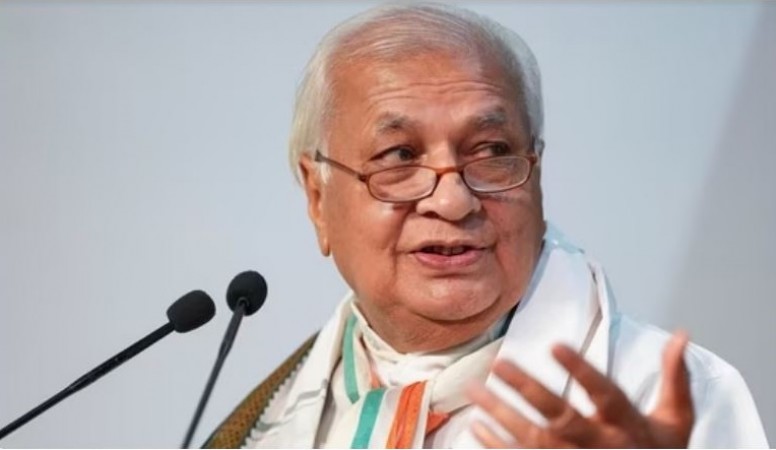
Thiruvananthapuram: Kerala Governor Questions the Migration of Muslims to the US and Europe in the Context of Muslim Personal Law.
In a thought-provoking statement, Kerala Governor Arif Mohammed Khan raised an intriguing question about the significance of Muslim Personal Law in Islam and the pattern of Muslims migrating to the United States and Europe. He wondered why there hasn't been a fatwa against Muslims residing in countries that do not implement these personal laws.
Expressing his support for the widely debated proposal to introduce a Uniform Civil Code in India, which would be applicable to all citizens regardless of their religion, Khan emphasized that the objective behind it is not to promote uniformity in customs but rather to ensure uniformity in dispensing justice.
Khan remarked, "If Muslim Personal Law is truly indispensable to the practice of Islam, why haven't Muslims taken a collective stance and issued a fatwa prohibiting members of the community from residing in countries that disregard these laws? Why is there such a strong inclination among Muslims to migrate to the US and Europe, where personal laws are absent? Muslims can lead their lives as practicing Muslims in the US, UK, or even Pakistan, where personal laws are not in place. However, in India, their ability to do so is restricted in the absence of personal law."
The Governor sought to dispel the misconceptions surrounding the Uniform Civil Code, referring to them as "propaganda." He clarified, "The aim of this law is not to enforce uniformity in customs or marriage ceremonies. The misconception being spread is that if the Uniform Civil Code is implemented, Muslim marriages cannot be solemnized through nikah."
He further elaborated on the purpose of the law, stating, "The focus is on ensuring uniformity in the dispensation of justice. Our goal is to establish equality in justice for all, regardless of their religious affiliations. India, aspiring to become a global power, should strive for justice that is uniform. I advocate for equal treatment under the law for all individuals facing the same issues, irrespective of their religion."
Highlighting historical context, Khan mentioned that even the Muslim kings who ruled Delhi did not enact a specific Muslim law. It was the British who introduced such legislation. He pointed out, "Since the arrival of the British, they have maintained that India is not a unified nation but rather a diverse amalgamation of communities. I believe that the common Muslims have a clear understanding of this situation."
Responding to the Governor's remarks, Indian Union Muslim League MP ET Muhammed Basheer emphasized that the Uniform Civil Code does not solely affect the Muslim community. He stated, "Those who claim that it exclusively impacts Muslims have ulterior motives. Numerous communities within this vast country will be influenced. At present, nobody is compelled to adhere to personal laws. If an individual chooses not to follow them, they are free to do so."
In Kerala, various Muslim organizations have expressed opposition to the Central Government's push for a Uniform Civil Code. The Samastha Kerala Jem-iyyathul Ulama, a scholarly body representing Sunni-Shafi'i sect, indicated their disagreement with the proposed law.
Kerala Chief Minister Pinarayi Vijayan also referred to the Uniform Civil Code as an "electoral agenda" and urged the Centre to reconsider its attempt to impose it.